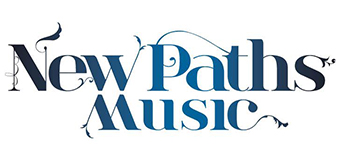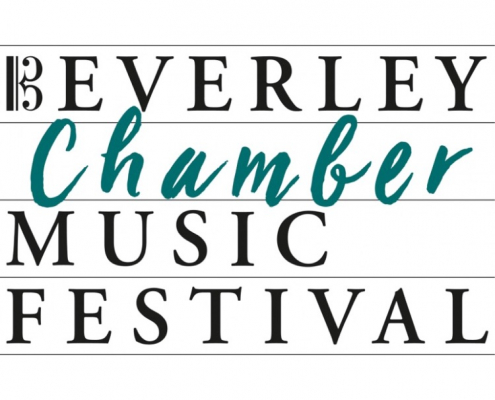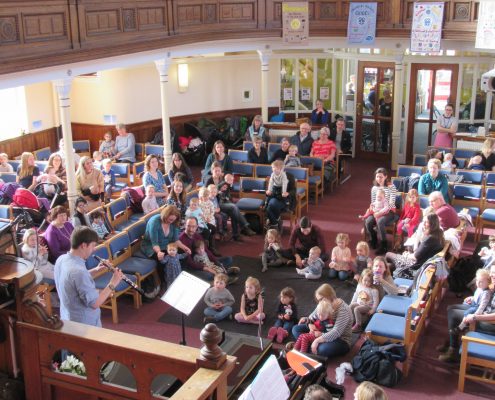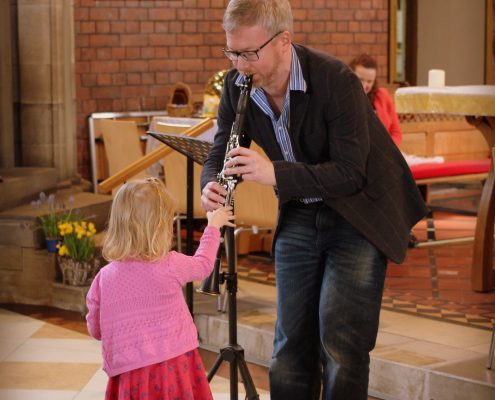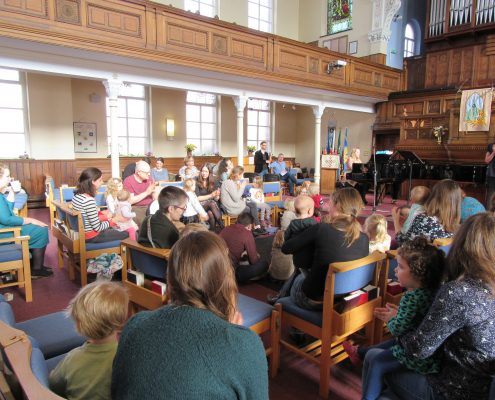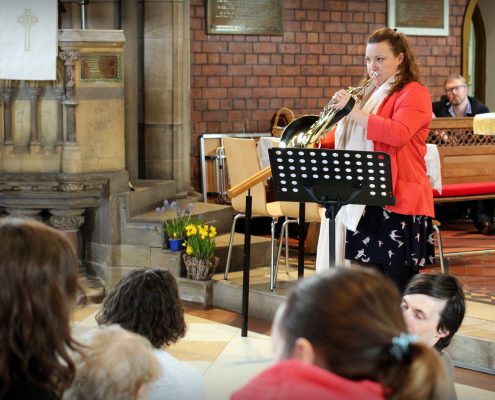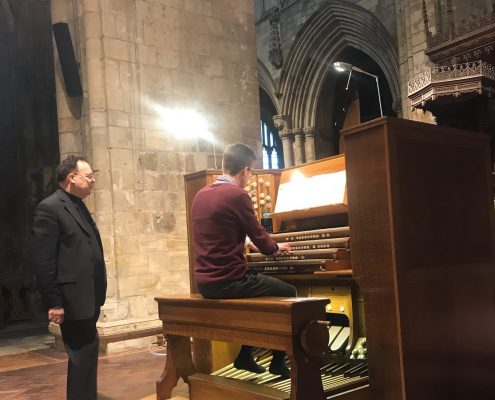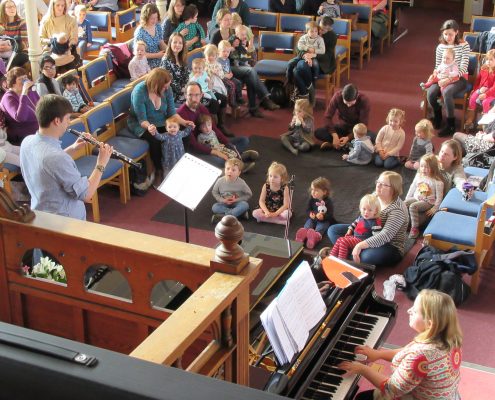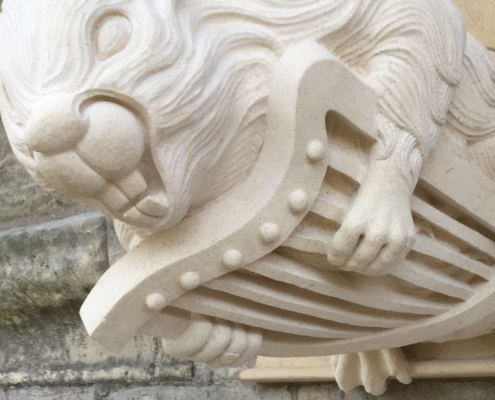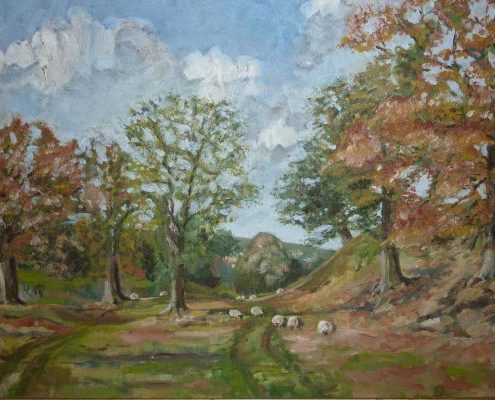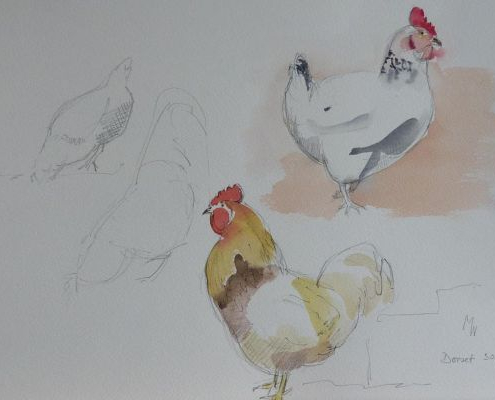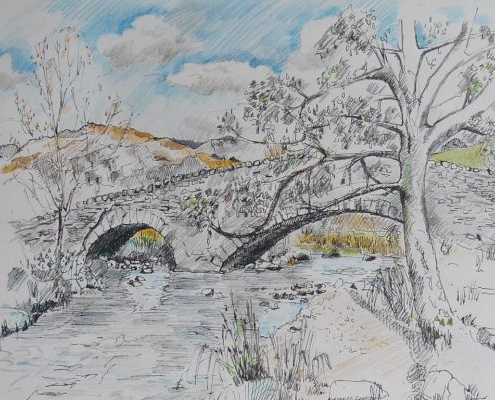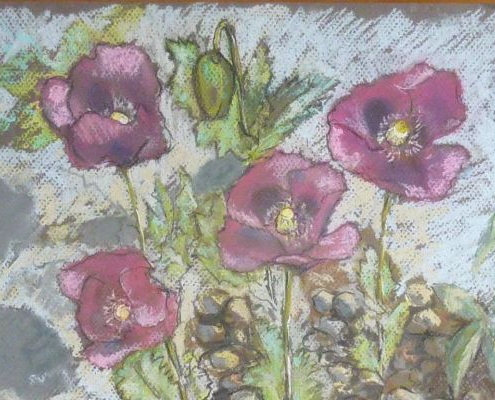“Where are the songs of Spring? Ay, where are they? Think not of them, thou hast thy music too”
The sun is low in the sky above the East Riding, the hedges in the Wolds hang thick with berries, and so a misty autumnal stage is set for the 2018 Beverley Chamber Music Festival which opens next Wednesday. Hunker down in the cosiness of beautiful St Mary’s Church next week for four days of heart-warming chamber music whilst the air deals blows outside, bringing down summer. Tickets for all concerts are still available: buy yours today.
There is a ripeness of autumnal music throughout the programme; from Bridge’s passionate and melancholy Phantasy Piano Quartet in F sharp minor in Phantasy: Four Quartets on the Saturday night to Schubert’s sublime Fantasia in F minor in Fantasy: Four Hands on the Friday lunchtime.
But perhaps the autumnal soul of the festival lies in the mellow sound of the viola: at the heart of the festival’s logo is now an alto clef representing the B of Beverley (fitting, as ex-Beverley Grammar schoolboy, James Brown, the managing director of Hazard Chase which started the festival over 25 years ago, began his career as a viola player); and Dvorak, our main featured Czech composer this year, played the viola and wrote great viola parts. And so we’re delighted to welcome back to Beverley outstanding violist Simon Tandree. Hear him in our closing concert, Phantasy: Four Quartets.
Many festivalgoers will remember Simon’s remarkable performance of Britten’s Lachrymae in the first New Paths festival in 2016 as part of our Shakespeare celebration. The poetic pile of leaves at the end of this newsletter includes Shakespeare’s poignant ode to autumn, his Sonnet 73, surely one of the greatest poems on the subject. Enjoy!
“And night skies so brilliantly spread-eagled with their sharp hint of a journey”
The Doric String Quartet’s concert on Friday 28th September, La Serenissima, includes two great works written in the autumn of the lives of their respective composers: Schubert’s String Quartet No. 15 in G major, D. 887 and Britten’s String Quartet No. 3.
Both Schubert and Britten were masters of writing nocturnal music and, although they lived a century apart, one can perceive an affinity between the two of them; and the quote above from Philip Larkin’s poem, Autumn, somehow captures this arc across history.
We cannot wait to hear the world-renowned Doric String Quartet perform these masterpieces. To whet your appetite, here they are playing an extract of the Schubert:
Britten began writing his String Quartet No. 3 in October 1975, completing the composition draft in Venice the following month. Work on the score proved to be exceptionally tiring, and Britten employed the young composer Colin Matthews as an amanuensis and personal assistant: Colin would play through Britten’s sketches on the piano, with the composer himself adding the ground bass in the final passacaglia movement.
In December 1975, Colin performed the piece with his brother, David, privately for the composer in a piano duet arrangement. Britten died the following year, shortly before the piece was performed in public for the first time.
We are honoured that Colin will be at the festival speaking about his extraordinary experience of working with Britten in What harbour shelters peace?.
Some places for that talk are still available. Don’t miss the chance to hear such a distinguished musician in conversation in Beverley about his encounter with one of greatest British composers of all time: reserve your place today. There is a meal at Pizza Express after the talk and before the Doric’s concert. Join festivalgoers at Supper: A Tavola! for what is sure to be a convivial occasion.
Colin’s orchestration of Britten’s Michelagelo Sonnets was premiered in the opening concert of the Aldeburgh Festival earlier this year and to give you a flavour of Colin’s special insight into Britten, here he is talking about that particular project:
A ‘micro-cosmos’ of music in Beverley
We are thrilled that the festival includes a special performance for the youngest of audiences in Beverley: Bohemian Babies, a concert for babies and toddlers (and their parents). New Paths is proud to have been planting musical acorns in the East Riding since we started life in 2016. Every single one of these free concerts has been over-subscribed! We’re delighted with their popularity and it is a joy to welcome back families year after year. Our team of musicians have hugely enjoy the experience of performing for Beverley’s fledgling musicians.
On the Thursday afternoon of the festival, three talented local young musicians will take to the stage in St Mary’s for a Masterclass in which they’ll receive expert coaching from festival artists. We greatly look forward to welcoming the students – Luca Myers (piano), Iskra Lazarova (violin), and Anna Bennett (flute) – to the festival. Don’t miss this opportunity to see the next generation of musicians in the region perform live and to witness the creative process close-up.
New Paths’ tireless work to widen access to music and provide inspiring musical experiences which contribute to the educational, cultural and economic well-being of the region is fundamental to its existence as a charity. We have bold plans to increase further our community and education programme, but we need support from donors to do this. Please consider helping our dynamic, young charity continue in its work by making a donation and/or becoming a Friend or Patron of one of our festivals. Learn more about supporting us here.
Reaching for the world
Beverley is home to a ‘musical oak’ in 87-year-old composer, Anthony Hedges, whose considerable output includes the cantata, Bridge for the Living, for which Philip Larkin wrote the text. The work was composed to celebrate the opening of the Humber Bridge in 1981. Hear Dr Hedges’ Four Concert Duos performed by our co-artistic directors, Martin Roscoe and Libby Burgess, at the festival in Fantasy: Four Hands.
Throughout this newsletter, we’ve used some autumnal phrases from various Larkin poems. Bridge for the Living contains some rousing words from Larkin which articulate some of the hopes and dreams encapsulated in that magnificent bridge:
The winds play on it like a harp; the song,
Sharp from the east, sun-throated from the west,
Will never to one separate shire belong,
But north and south make union manifest.Lost centuries of local lives that rose
And flowered to fall short where they began
Seem now to reassemble and unclose,
All resurrected in this single span,Reaching for the world, as our lives do,
As all lives do, reaching that we may give
The best of what we are and hold as true:
Always it is by bridges that we live.
Multi-talented musicians
As well as being a phenomenal viola player, Simon Tandree, is also a qualified cranio-sacral therapist and tutor at the College of Craniosacral Therapy in London! He is not the only artist on the roster with skills outside of music: in particular, Moray Welsh. In addition to being an illustrious cellist, Moray is an artist. Hear Moray in If I only knew… To give a flavour of Moray’s work as an artist, here are a couple of his artworks:
Three poems for autumn
We are excited that the first of the musicians arrive in Beverley for the festival in only five days. To get you in the mood for the cornucopia of autumnal music which we have in store for you next week, we leave you with three of our favourite autumn poems, the last of which is by one of our much-loved founder donors, Neale Edwards.
To Autumn
by John Keats
Season of mists and mellow fruitfulness,
Close bosom-friend of the maturing sun;
Conspiring with him how to load and bless
With fruit the vines that round the thatch-eves run;
To bend with apples the moss’d cottage-trees,
And fill all fruit with ripeness to the core;
To swell the gourd, and plump the hazel shells
With a sweet kernel; to set budding more,
And still more, later flowers for the bees,
Until they think warm days will never cease,
For Summer has o’er-brimm’d their clammy cells.
Who hath not seen thee oft amid thy store?
Sometimes whoever seeks abroad may find
Thee sitting careless on a granary floor,
Thy hair soft-lifted by the winnowing wind;
Or on a half-reap’d furrow sound asleep,
Drows’d with the fume of poppies, while thy hook
Spares the next swath and all its twined flowers;
And sometimes like a gleaner thou dost keep
Steady thy laden head across a brook;
Or by a cyder-press, with patient look,
Thou watchest the last oozings hours by hours.
Where are the songs of Spring? Ay, where are they?
Think not of them, thou hast thy music too –
While barred clouds bloom the soft-dying day,
And touch the stubble-plains with rosy hue;
Then in a wailful choir the small gnats mourn
Among the river sallows, borne aloft
Or sinking as the light wind lives or dies;
And full-grown lambs loud bleat from hilly bourn;
Hedge-crickets sing; and now with treble soft
The red-breast whistles from a garden-croft;
And gathering swallows twitter in the skies.
Sonnet 73
by William Shakespeare
That time of year thou may’st in me behold
When yellow leaves, or none, or few, do hang
Upon those boughs which shake against the cold,
Bare ruin’d choirs, where late the sweet birds sang.
In me thou see’st the twilight of such day,
As after sunset fadeth in the west,
Which by-and-by black night doth take away,
Death’s second self, that seals up all in rest.
In me thou see’st the glowing of such fire
That on the ashes of his youth doth lie,
As the death-bed whereon it must expire
Consum’d with that which it was nourish’d by.
This thou perceivest, which makes thy love more strong,
To love that well which thou must leave ere long.
Tempus Fugit
by Neale Edwards
Autumn’s herald here has ruffled
Leaves and limbs as it foretells
Storms to come and rainy huffles,
To fell the trees and fill the wells.
Badger in the dead leaves snuffles,
Putting the clocks back tells
Of shopping days to Christmas, truffles
Brandy butter, mince pies, and bells.
Then spring comes, and we recover,
New green shoots, and leafy dells,
Oyster catcher, curlew, plover,
And, I hope, my Lover.
Carpe diem
We hope that these poems inspire you to seize the day! Don’t miss the chance to hear a feast of world-class music in Beverley next week. Buy your tickets today.
